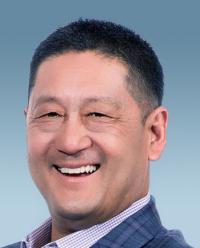John Kao said he isn’t at all worried these days.
The CEO and founder of the insurtech Alignment Health said that the collapse of Silicon Valley Bank and concern about the U.S. banking system, in general, doesn’t concern him in the least because he doesn’t do business with SVB.
He also said he believes that the business model for Alignment Health, a startup Medicare Advantage plan, will attract new beneficiaries and keep the approximately 109,000 members currently enrolled on board.
“I was the bank,” Kao told Fierce Healthcare about where the seed money came from. “I started Alignment Health back in 2013, 10 years ago.”
Alignment Health then raised $125 million in capital through the growth equity company General Atlantic, which had been sold on Kao’s mission to improve the healthcare outcomes for the elderly by offering the sort of concierge care that huge legacy Medicare Advantage insurers like UnitedHealthcare and Humana don't.

Kao likened Alignment Health to Amazon and its “maniacal” attention to the customer experience.
“Everything is customer, customer, customer with Amazon,” said Kao. “In our case, it’s senior, senior, senior. Treating them like they’re your mom and dad. That’s what’s gotten us here.”
“Here” equals $1.43 billion in total revenue last year, and a projected $2 billion in total revenue by 2024.
Alignment Health did experience some growing pains as it entered new markets in Texas and Florida. Those led to a 2022 fourth-quarter net loss of $57 million. In addition, the company reported a loss of $149.6 million in revenue for 2022, compared to more than $195 million in all of 2021.
Kao said his company took a “contrarian view” when it came to fiscal management, unlike many insurtech and biotech startups that may now find themselves struggling because they tried to make too much money too quickly. Kao maintained his slower-is-better approach even when the company went public in 2021.
“We were fiscally conservative,” said Kao. The company strived for a 20% growth rate, he said.
“And we said that we’re going to move toward being cashflow positive by 2024. And part of the reason we did that was because of the issue everybody’s talking about these days: capital. Capital is precious. We raised the capital, but we’ve been very discerning about how we deploy capital. We did not take a growth-at-all-cost mentality which frankly was very in vogue two and a half years ago," Kao said.
Alignment Health grew at three times the industry average. “But it wasn’t 10 times the industry average,” said Kao. “And because of that, we were very mindful of moving toward profitability. And we were very mindful of maintaining a very strong balance sheet. We have no exposure to any of the banking issues or problems that exist out there.”
Kao attributed Alignment Health’s growth to the personalized care that the health plan offers. “If you’re 85 years old and you have three or four chronic conditions, we’re going to send nurses to your home to make sure you’re OK,” said Kao. “We realize that providing lifestyle benefits as supplemental benefits to seniors to address the social determinants of health is something that’s really important.”
Kao said that the issue hit home for him when years ago he tried to get the healthcare system to respond to his mother's health needs after she suffered a heart attack. The problem was that the doctors who treated his mother at the hospital didn’t communicate with her primary care physician and other providers.
Kao’s mother is now 90 years old and an Alignment Health beneficiary. She takes advantage of the health plan’s additional benefits, such as Papa's Pals, who assist with day-to-day activities and provide companionship to seniors.
“It’s a person who comes to my Mom’s residence, picks her up, and takes her to the Chinese grocery store for an hour,” said Kao. “She gets the stuff she needs and then she’s taken back home.”
Sounds simple, but Kao said such a service gives a beneficiary a chance to get out the house and socialize with people. “It’s an opportunity to have and maintain her dignity and independence and freedom,” said Kao. “It’s really important for someone’s mental state to have that.”
Alignment Health also offers pet care; someone to look after a member’s pets if the individual goes to the doctor or hospital. Another benefit involves a flashcard worth $50 to $100 for groceries.
Kao takes his inspiration from Amazon’s focus on the customer. However, some have pointed out that Amazon became Amazon by driving smaller competitors out of business because it could underprice items.
What’s to keep the huge legacy Medicare Advantage plans from mimicking what Alignment Health does and driving it out of business?
For one, said Kao, his beneficiaries say that they “love” what Alignment Health does—a word not usually associated with health insurers.
“I would suggest that most people would not think that way about the large health insurers,” said Kao. “I think they would say that they’re big and they’re powerful. But their services are not so good. Their net promoter scores are not so good. This whole idea of having a little company like ours actually compete in this land of the giants and win the hearts and minds of over 100,000 seniors—which to your point is still very small—but still 100,000 people. And I would say that 85% of that growth has come from seniors that have switched from large insurers. It’s a better mousetrap.”